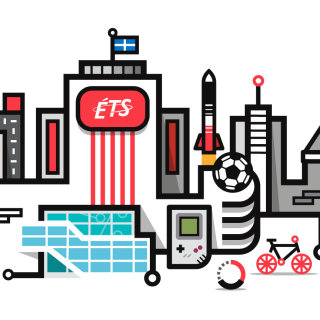Aula, collegezaal D, Mekelweg 5
Lunch buffet open from 12.00
*Please forward this to interested students and employees
Title:
Visual Recognition from Large-Scale and Weakly-Labeled Image Data by Eric Granger, ETS Montreal, Canada. Hosted by Julian Kooij.
Abstract:
State-of-the-art sensors to capture images, audio and video signals are paving the way to innovative, next-generation technologies for many important applications in the areas of, e.g., video surveillance, medical diagnosis, health monitoring, content-based image/video retrieval. For instance, the detection, tracking and recognition of actions, cars, people, etc., appearing over a distributed network of cameras is a key component for many video-based summarization and surveillance applications.
Designing accurate recognition systems for these applications typically gives rise to several challenges because it involves learning complex models using large weakly-annotated data sets that incorporate domain shifts, subtle noise, variations and uncertainties embedded in real-world signals.
Focused on training visual recognition models from large amounts of weakly-labeled image data, this talk will discuss recent techniques for deep learning, sparse modeling, weakly-supervised learning, cross-domain adaptation, and information fusion, which promise to address such complex image/video processing problems.
Short Bio:
Eric Granger received Ph.D. in Electrical Engineering from École Polytechnique de Montréal in 2001, and worked as a Defense Scientist at Defense R&D Canada – Ottawa (1999-2001), and in R&D with Mitel Networks (2001-04). He joined the École de technologie supérieure (Université du Québec), Montreal, in 2004, where he is presently Full Professor and director of LIVIA, a research laboratory at ETS Montreal that is focused on computer vision and artificial intelligence. His research interests include pattern recognition, machine learning, computer vision, domain adaptation, and incremental and weakly-supervised learning, with applications in biometrics, affective computing, video surveillance, and computer/network security.
